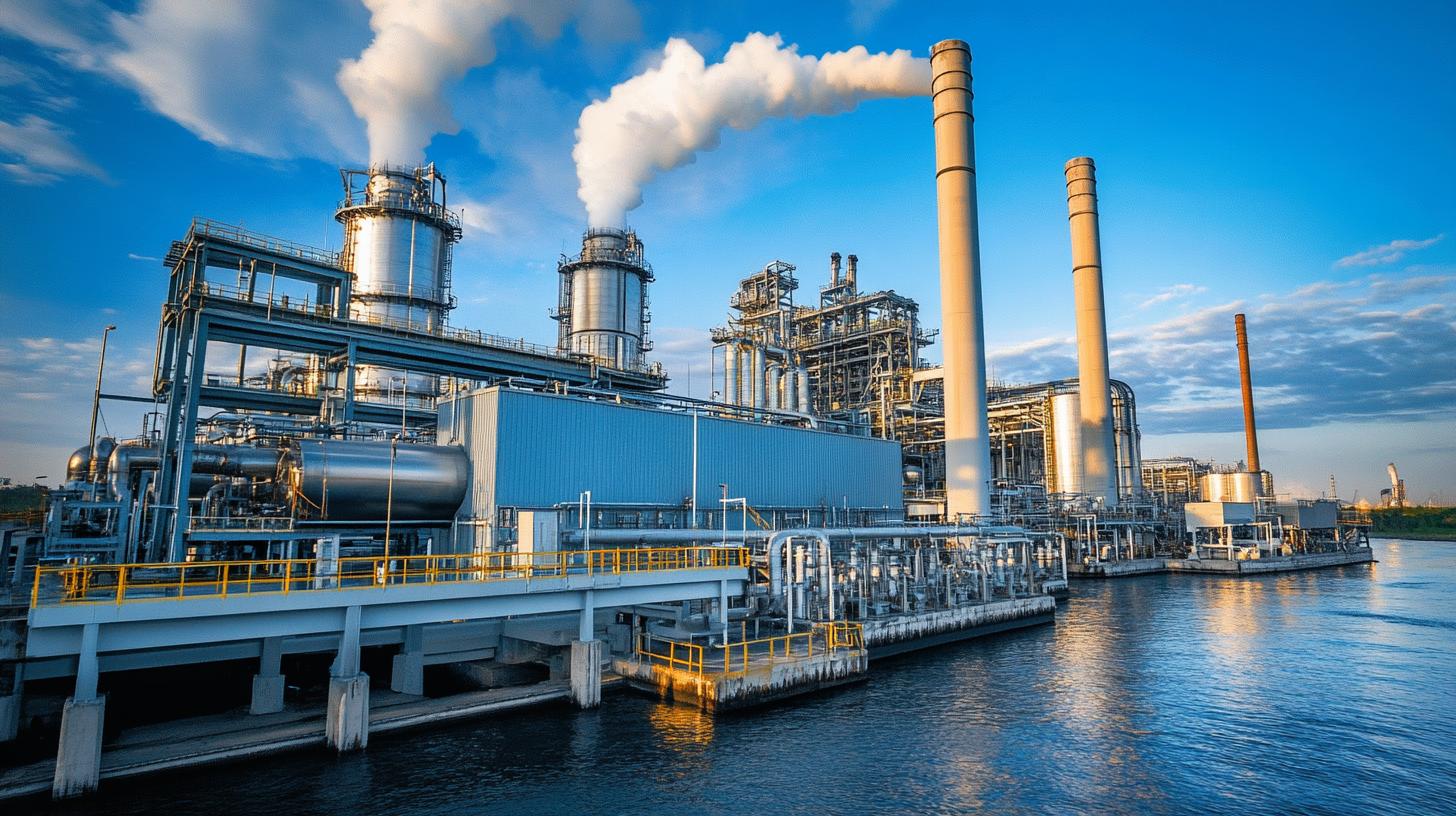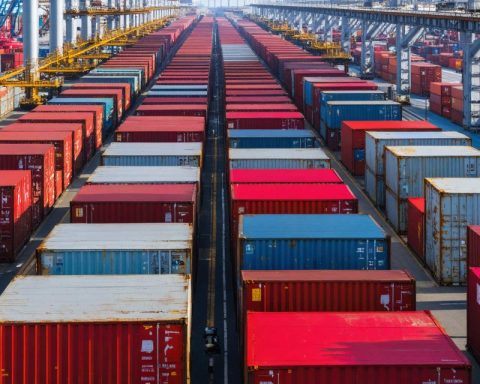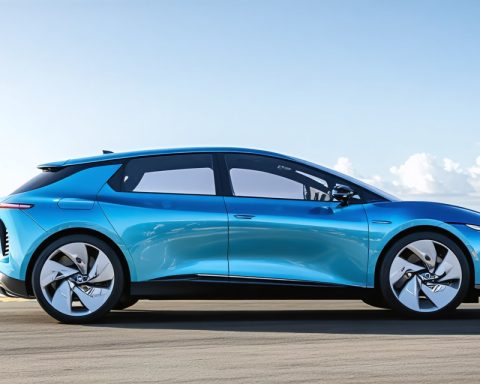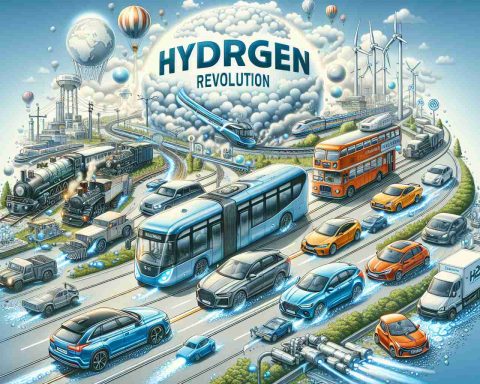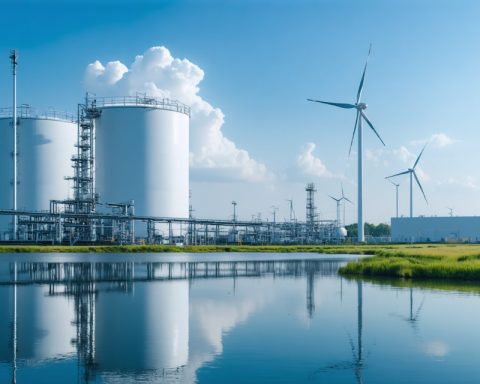In an audacious move, Egypt is charting a path to become a pivotal player in the global green hydrogen movement. With a staggering $40 billion investment blueprint, the nation is not only dreaming big but acting decisively in advancing its hydrogen agenda. Leveraging its vast solar and wind resources alongside a strategic geographical position, Egypt aims to emerge as a prime exporter of green hydrogen to discerning markets like Europe.
One noteworthy collaboration in this ambitious push involves SK Ecoplant and the China State Construction Engineering Corporation. These giants aim to tap into the Suez Canal Economic Zone’s potential, announcing a $2 billion venture that combines formidable solar and wind power resources to produce significant quantities of green hydrogen and ammonia. Completion may still be over five years away, but this project sets the tone for Egypt’s grand vision.
Meanwhile, Norway’s Scatec, in concert with Fertiglobe and other partners, plans to contribute to Egypt’s greener future with a project near Ain Sokhna. By synergizing solar and wind power, this initiative, which enjoys both international and local backing, anticipates a production of 13,000 tons of green hydrogen annually, serving crucial industrial needs.
Furthermore, AMEA Power’s endeavor to create a substantial hydrogen facility proposes to satiate Europe’s growing demand for clean energy. This aligns perfectly with Egypt’s strategy to enhance its global standing as a green energy hub.
As part of a broader consortium, notable developments also include an agreement led by bp and joined by Masdar and others, striving to unify their efforts under a singular, expansive hydrogen project.
In an impressive finale, EDF Renewables takes the stage alongside Zero Waste Technologies, securing a deal to establish a plant that will deliver hefty amounts of green ammonia, thereby supporting not just Egypt’s ambitious energy transition, but also global climate commitments.
Is Egypt Poised to Become the New Green Energy Superpower?
Egypt’s aggressive push into the green hydrogen market is making waves globally, with implications that extend far beyond its borders. This move not only positions Egypt as a future leader in sustainable energy but also poses significant questions about the future of global energy markets and environmental policies. Let’s delve into how this unprecedented venture could change the lives of people, communities, and even countries.
Impact on Local Communities and the Economy
Egypt’s $40 billion green hydrogen initiative holds the promise of revolutionizing local economies and societies. For one, it is expected to generate thousands of jobs, from construction and engineering to logistics and maintenance of renewable energy infrastructure. This development could significantly reduce unemployment rates in the region, potentially altering the economic landscape of Egypt and neighboring territories.
However, the move could also spark controversy, given the environmental and social implications of such large-scale projects. The reliance on substantial land areas for solar and wind farms has prompted questions from environmentalists concerning habitat disruption and the ecological footprint of such endeavors.
Global Implications: What This Means for the World
Positioned strategically at the crossroads of Africa, Asia, and Europe, Egypt could become a key supplier of green hydrogen, impacting global energy dynamics. Particularly for Europe, which is aggressively seeking alternative energy sources to reduce dependency on fossil fuels, Egypt’s green hydrogen could play a pivotal role in achieving climate goals.
This shift could stimulate international collaborations, re-shape current energy alliances, and possibly strain relations with traditional fossil fuel producers. Could this also lead to new geopolitical tensions? Only time will reveal the broader impacts as these projects come to fruition.
Controversies and Debates: Are We Ready for Such a Drastic Transition?
While the potential benefits are vast, there are significant debates surrounding the feasibility and readiness for such a strategic transition. Questions about the large-scale viability, cost of production, and transportation of green hydrogen remain at the forefront of discussions in the energy sector. Moreover, the commitment to sustainable practices in this transition is a topic under constant scrutiny.
Interesting Facts: Did You Know?
– Green hydrogen is considered a “clean” energy source because it produces only water as a byproduct when used. But its production requires significant renewable energy input, making the efficiency and sustainability of the process a critical point of discussion.
– Egypt’s Suez Canal Economic Zone, a hub for these ventures, is strategically significant, reducing transportation costs and enabling easy access to major global markets.
– The country’s vast desert landscapes offer abundant sunlight for solar power generation, coupled with favorable wind conditions, creating an ideal setup for renewable energy production.
Related Links
For those interested in diving deeper into the topic, here’s a collection of relevant links:
– Learn more about renewable energy advancements at the International Renewable Energy Agency.
– Explore the latest green hydrogen insights from Hydrogen Council.
– Stay informed on new energy developments with Reuters.
Egypt’s strides into the realm of green hydrogen offer a glimpse into a possible future where renewable energy sources dominate the global market. While challenges remain, the impact of these initiatives may pave the way for a cleaner, more sustainable world. Whether communities and industries are ready for such rapid transitions remains a compelling question that the world must grapple with.
